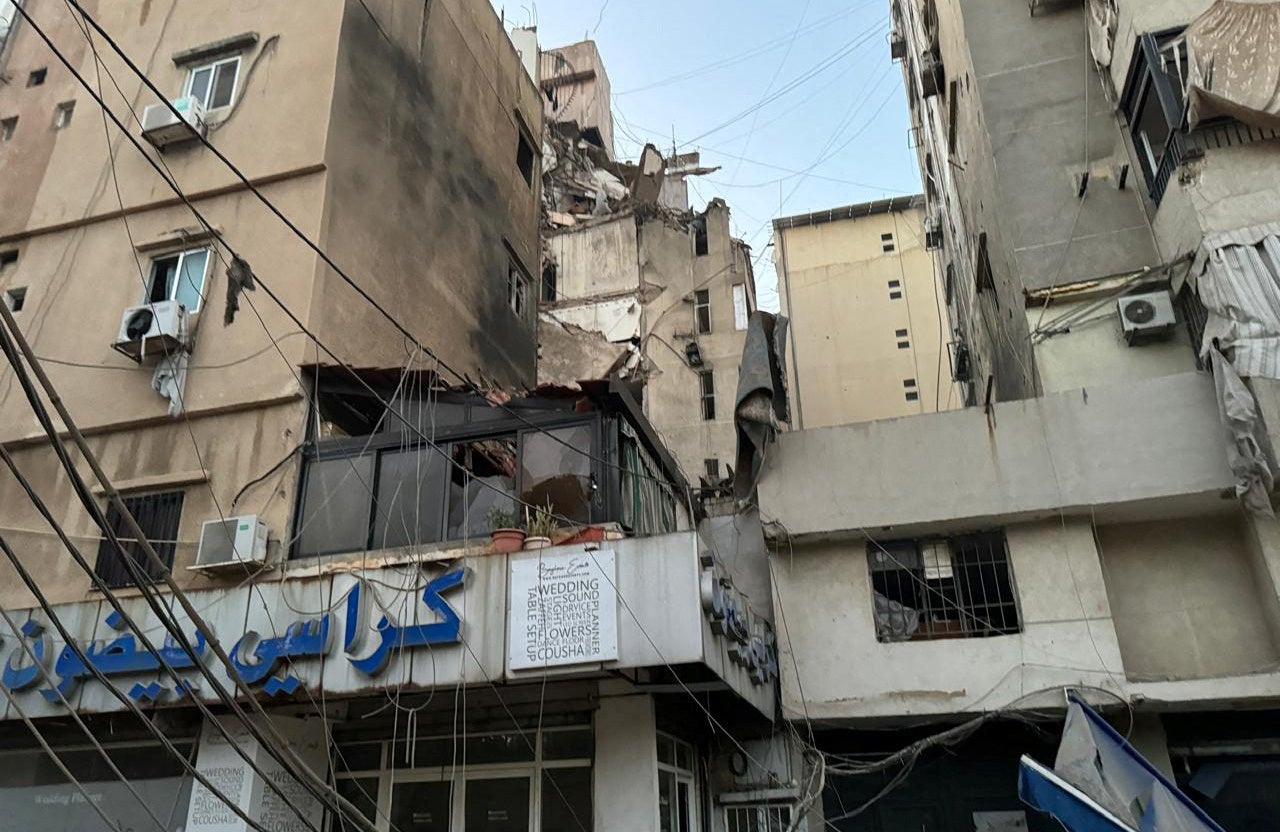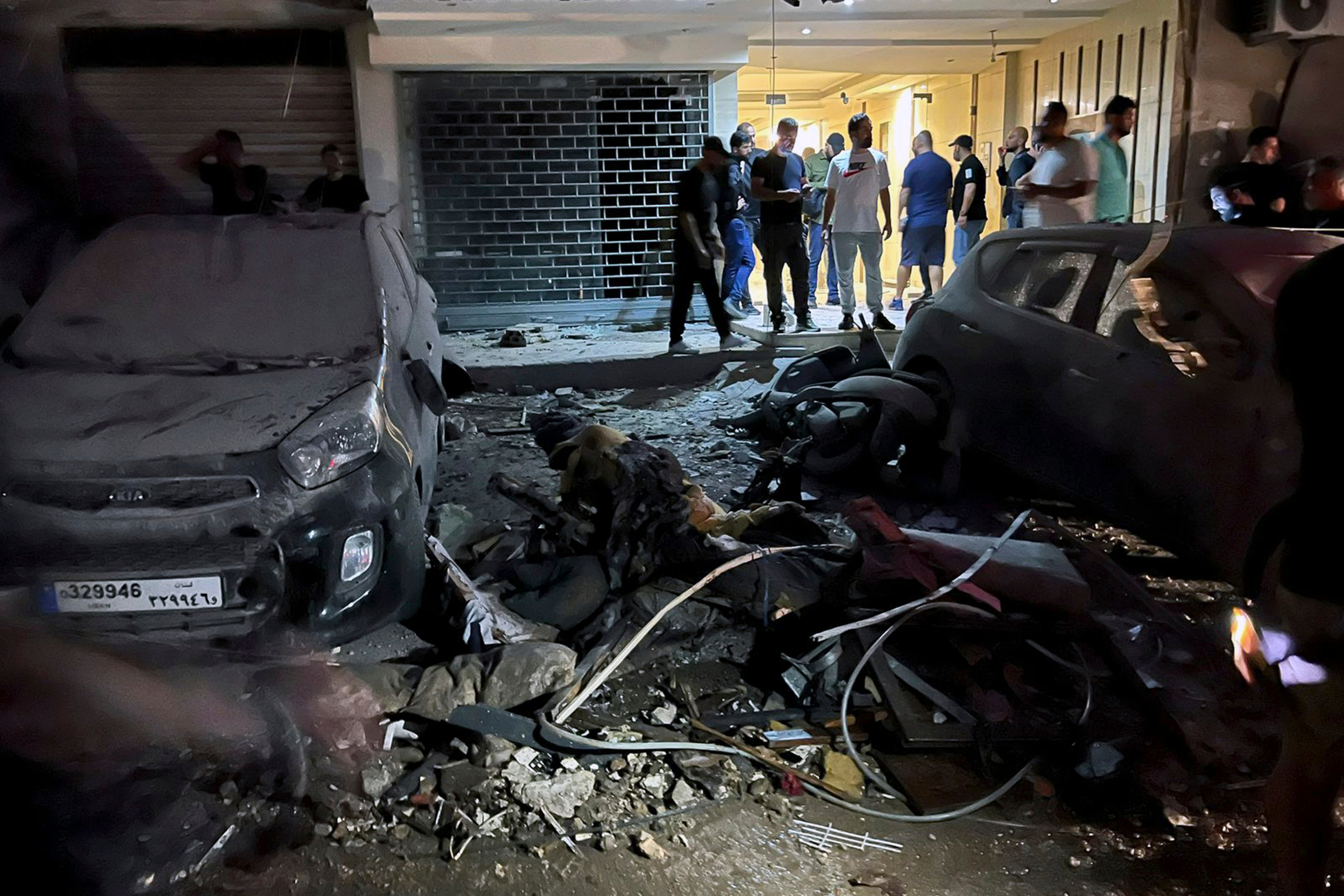Israel has carried out a strike on southern Beirut, targeting a senior Hezbollah commander they claimed was “responsible for the murder of children”.
Footage from the Lebanese capital shows the shells of several destroyed cars, as well as high-rise buildings gutted by the blast. Plumes of thick black smoke cloud the camera view as residents can be heard screaming.
It is the first time the Israeli military has targeted Beirut since Hamas attacked Israel on 7 October, killing 1,200 people and taking 251 hostage. Hezbollah have been firing into Israel continually since that day, causing concern that Israel could end up – or even preempt – fighting a war on two fronts.
The Israeli military claimed the strike was their widely-anticipated reaction to a rocket attack on the occupied Golan Heights last Saturday that killed a dozen children and young people.
The alleged target of the strike was Fuad Shukr, also known as al-Hajj Mohsin, who is a senior advisor on military affairs to Hezbollah’s leader Hassan Nasrallah. It is unclear whether the strike was successful. The Israeli military declined to confirm that Shukr was the target when approached by The Independent. Hezbollah has also been reached for comment.
The Iran-backed militia Hezbollah claimed they were not responsible for the Golan Heights attack on the Druze community.
But Israel prime minister Benjamin Netanyahu said they were under no illusion about Hezbollah’s role in the strike. During a visit to site of the attack in the remote town of Majdal Shams, a majority Druze village in a region annexed by Israel from Syria in 1981, he vowed to issue a “harsh” response.
US officials also said they believed Hezbollah was responsible, though the Joe Biden administration had urged Israel not to escalate tensions too drastically in their response to the strike.
Diplomats had called on Israel to avoid targeting the Lebanese capital Beirut, its southern suburbs that form Hezbollah’s heartland, or key infrastructure. They hoped that by keeping Israel’s response limited, forceful retaliation by Hezbollah could be avoided.


But a statement from the Israeli military confirmed they had defied that advice and targeted southern Beirut.
A statement posted to X, formerly Twitter, read: “The [Israeli military] carried out a targeted strike in Beirut, on the commander responsible for the murder of the children in Majdal Shams and the killing of numerous additional Israeli civilians.”
A minute after the statement was published, Israeli defence minister Yoav Gallant, a close aide of Netanyahu, wrote on X: “Hezbollah crossed the red line.”
The military added that there were “no changes” to their “defensive guidelines”, a reference to their recent developments on Israel’s northern border readying to go on the offensive if needed.
In April, the military said that it had completed another step in preparing for a possible war along its northern front. In a statement titled “readiness for the transition from defence to offence”, they said the phase completed centred on logistics “for a broad mobilisation of [Israeli] troops”.
Earlier on Tuesday, Hezbollah rejected calls from international envoys to avoid responding to the anticipated Israeli attack.

Hezbollah informed mediators it would still respond to any Israeli attack, an official said in written comments sent to reporters.
The official did not say which countries the mediators represented.
“International envoys are indirectly raising with us the idea that we should not respond to the expected aggression under the pretext of the need to avoid escalation and sliding towards a comprehensive war,” the Hezbollah official said.
Hezbollah had “informed them of our explicit rejection of this request” and would respond, the official said.
The group took Israel’s threats seriously and was prepared, but did not expect a ground invasion, the official said.
Hezbollah also said mediators had informed them of diplomatic efforts to urge Israel to spare civilians and civilian facilities in any operation. “This is a good thing, but we do not trust our enemy,” the official added.

